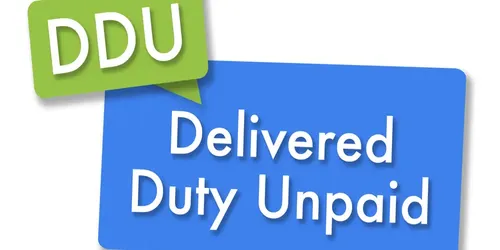What Is the Best Thing to Do With a Lump Sum of Money?
Dec 09, 2024 By Pamela Andrew
Are you expecting a fat amount of money anytime soon? Be it your tax refund, inheritance, or bonus, you have an excellent chance to secure your future financially. Rather than spending this amount impulsively, why not plan for saving it effectively? This article will familiarize you with one of the most effective yet simple techniques for wisely managing your windfall.
Where That Lump Sum is Coming From
 Familiar Sources of Windfall Cash
Familiar Sources of Windfall Cash
There are many unplanned financial windfalls, each with its problems. Many Americans anticipate a refund from their income tax every year. Though it is not "extra" money, psychologically, this money is perceived as extra, and it even presents them with an opportunity to create an excellent financial plan.
Another potential source of a windfall could be inheritance. Potential inheritance is very emotionally confusing, both when expected and when not. A windfall like this should be planned with great sensitivity and respect for the legacy behind it.
Work bonuses or profit-sharing distributions also create windfalls. These may reward your work and therefore be expected, yet the size can still be a welcome surprise.
Less Common but Possibly Significant Windfalls
Some people come into lottery winnings. These latter few are rare but can be the most life-changing and require immediate, thoughtful financial planning.
Other large windfalls come through legal settlements and insurance-type payouts. These are often associated with negative situations and could be earmarked to replace costs or losses.
Finally, ample assets - houses, companies, and collectibles - can yield a good amount of cash at one time. These are often predicted but hard to handle when they do occur.
How Much You Should Save vs Spend
Therefore, when a lump sum of money falls into your pocket, you should balance saving and spending. At this point, there will be many temptations to splurge; however, taking a strategic move could help you achieve long-term success in terms of finance.
The 50/30/20 Rule
One common rule for dealing with your windfall is a quite straightforward strategy: the 50/30/20 rule.
50% Needs: Apply this to debts, necessary expenses, and to build up your emergency fund.
30% Wants: Go ahead and treat yourself but in moderation.
20% Savings and Investments: Now's your chance to plan for long-term financial security.
However, when you have a windfall, you may want to adjust the percentages of these categories in a direction that is most favorable for your long-term financial success.
Things to Consider
Your circumstances should guide your decision to save or spend. Consider your current financial situation:
Debts and interest rates
Short-term and long-term goals
Age and retirement plans
You could, for example, devote a more significant sum to debt repayment when you are younger and burdened with higher interest rates. You would want to make the nest egg larger if you are older and nearer to retirement.
The Power of Saving
Enjoy your windfall, but remember: saving the lion's share could pay dividends. If you invest it wisely, compound interest can help that money grow for you over time. This would assure financial security and offer future opportunities that might not otherwise be there.
It's all about finding that balance that will answer your immediate needs and desires yet set you up for a secure financial future. Consider consulting with a financial advisor to tailor a strategy best suits your unique circumstances.
How to Choose the Right Savings Account
 The main difference occurs when opening a savings account for a lump sum and earning most of your money. Savings accounts are not all created equally, and finding one that fits all your needs will make a significant difference in your overall strategy for saving.
The main difference occurs when opening a savings account for a lump sum and earning most of your money. Savings accounts are not all created equally, and finding one that fits all your needs will make a significant difference in your overall strategy for saving.
High-Yield Savings Accounts
High-yield savings accounts should be at the top of your mind when considering where to park your windfall. Most offer rates of return that are assuredly much higher than regular savings accounts, allowing your money to grow faster. Accounts offering APYs well over inflation go a long way in keeping the value of your money constant over time.
Online versus Traditional Banks
Online banks tend to have better interest rates due to lower operating costs. Traditional banks may offer, in return, the ability to visit a physical branch location and more financial services. Keep in mind accessibility and preference for customer service when weighing the decision between online and brick-and-mortar banks.
Features and Restrictions of the Account
Some account features to watch for include the following closely:
- Minimum Balance Requirements
- Monthly Maintenance Fees
- Daily Withdrawal Limits
- Mobile Banking Availability
Some accounts offer very attractive rates but have rigid rules or a high fee attached, which can nullify your interest earnings. Always read the fine print and calculate the possible returns based on your estimated deposit amount and savings timeline.
FDIC Insurance
Ensure that your chosen account is FDIC-insured, protecting your funds up to $250,000 per depositor, per insured bank. This federal backing provides peace of mind and security for your hard-earned lump sum.
Investing Some for Long-Term Growth
Diversify Your Portfolio
In light of this, you always tend to bank them into your savings account when you receive one of the most significant chunks of money. Part of it, however, may yield higher returns over time. Consider investing a particular chunk of money in a diversified portfolio. This may be a balancing risk-reward, and it increases your wealth at a much faster rate compared to what savings accounts could do.
You Can Diversify Your Investment Options
There are various investment avenues, each with a different risk and return profile. Stocks, bonds, mutual funds, and exchange-traded funds are among the multiple instruments gaining popularity among investors for long-term growth. Other potential ways to expose oneself to the market are through real estate investment trusts or index funds. Understand each through research or speak with a financial advisor to select the investment options that best fit your financial goals and risk tolerance.
Unleashing the Power of Compound Interest
The sooner you start investing and the more frequently the investment, the greater the power of compound interest- you heard it, the Eighth Wonder of the World. That means your investment returns earn further returns with time. The more extended it takes before your money is fixed up in investment, the higher the possibility of exponential growth. Even an infinitesimally meager amount judiciously invested will eventually grow into an enormous heap over the years, allowing your lump sum to work more effectively for you in the long term.
Conclusion
Remember that careful planning will yield more in your pocket as you are about to receive that large amount in cash. As illustrated in this article, you can make the most of your windfall by merely setting this straightforward strategy to save a good chunk of it. With more careful consideration and strategic actions, your more enormous lump will be a more robust tool in laying down lasting wealth and reaching your financial dreams.








